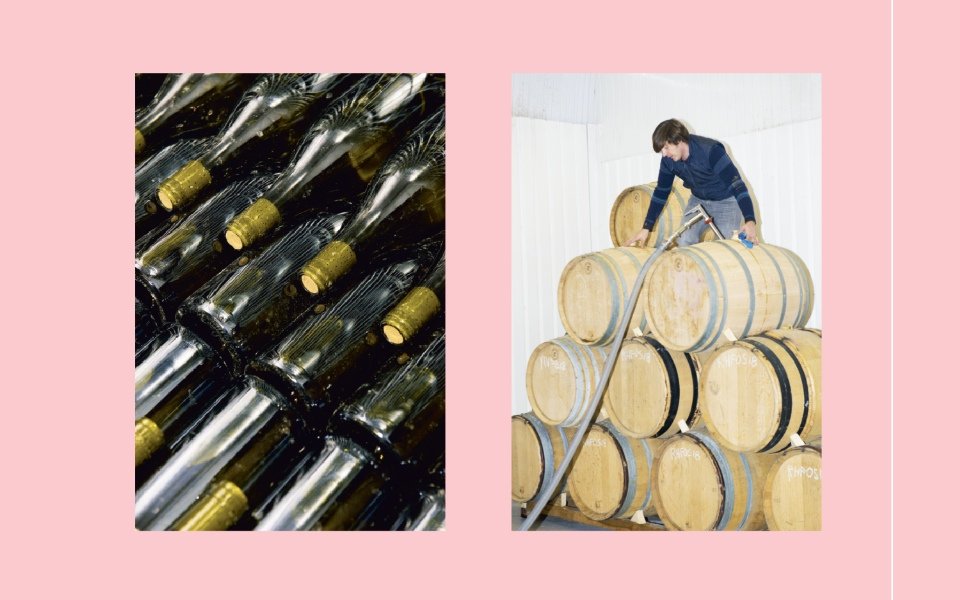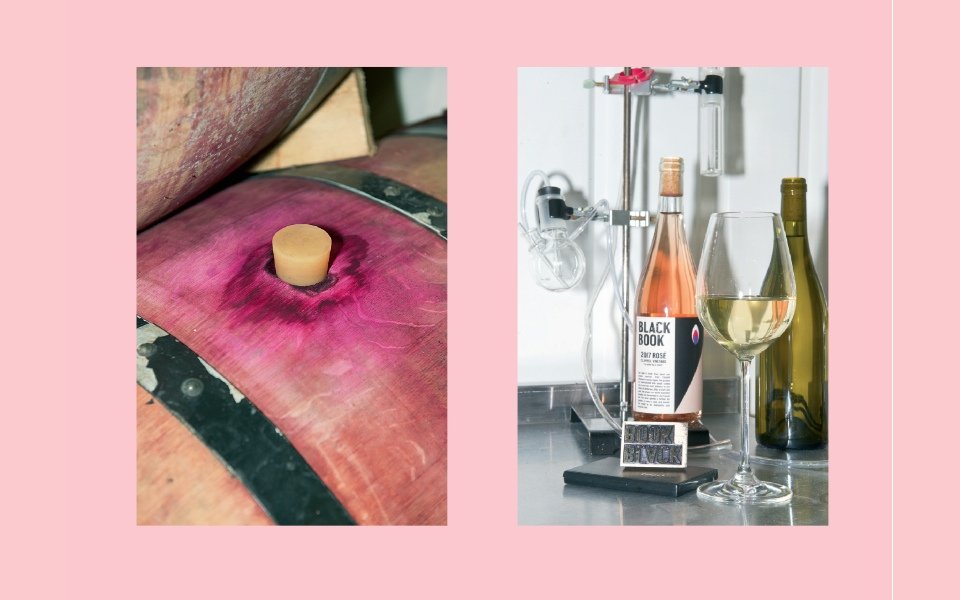From bottling in Battersea to viniculture in Tooting, you barely have to venture outside your house to find a winemaking scene
There are many ways people imagine exploring wine country. In a Fiat 500, driving across the hills of Tuscany with sunglasses on noses and Alanis Morissette in ears; touring the Languedoc by train, sipping crisp Saumur from Tours all the way to Paris. And these days, back home in England, where from Kent all the way down to Cornwall great wines are aged: chalky sauvignon in Sussex, a plummy rose in Dorset.
London, meanwhile, has always been somewhere to drink wine, but not to make it. Gin is distilled here and beer is bottled, but winemaking has no place in the grey, concrete capital, does it?
Actually, it does. Winemaking is no longer shackled to the countryside, with urban wineries springing up in Battersea and beyond. London is, after all, a city with plenty of empty cellars, rather a lot of cash, and millions of thirsty folk. The real surprise is it’s taken this long. Indeed, over in the US urban wineries have long been running in tandem with the country’s myriad of microbreweries.
The latest London winery is Blackbook, set up by Lynsey and Sergio Verrillo in 2016. It sources its grapes from vineyards “within hours of the city” and produced some 5,500 bottles from its first harvest. Cool climate pinot noir and chardonnay are its specialities, though it says there are no hard and fast restrictions to what might be made. Next year, output is expected to triple.
“London is an ideal host city for wineries for several reasons,” says Sergio. “It’s one of the biggest, most sophisticated wine markets in the world with a growing population of enthusiasts; the English wine industry is growing rapidly, and the market for grapes is reaching a scale where it’s accessible for small, ‘negotiant’ producers; and Londoners care about provenance, appreciating the ability to support a local producer.”
Like many London companies focusing on relatively low-output, high-end business, Blackbook, based near Battersea Park, is pushing its sustainable credentials and has embedded itself in the local community. Relationships with English growers are vital, as are links with buyers who are looking for an interesting story as well as a nice bottle of wine.

Another London wine trader, Vagabond, released its first vintage last year, made with grapes from Kent, Oxfordshire and Essex, as well as farther afield. For Stephen Finch, founder of the Battersea-based company whose pinot noir rose was once called “the best in the country” by Master of Wine Richard Hemming, the location is crucial: “If we built a winery in the countryside we would have to convince people to visit us, and given most Londoners don’t own cars that means we’d likely never see them. We figured it’s easier to ship in the grapes than ship out the people.
“If you look at the success of the craft breweries, it’s obvious that people want good quality, interesting products. Provided producers focus on quality and experience there’s no reason why smaller urban wineries can’t emulate the success of craft brewers.”
Together with fellow urban wineries such as Renegade and London Cru, the latter of which has made 80,000 bottles since its first vintage in 2013, Vagabond is part of an exciting wave of local London producers.
As exciting as Chateaux Tooting, though? Perhaps not. Neighbours Paul Miles and Richard Sharp have not been making wine in London – they do that a couple of hours’ drive away – but they have been growing the grapes. Chateaux Tooting, as it’s now known, has over the last 10 years become one of the few commercially viable London-grown wines.
Like so many things, the wine began as a naive and flippant project. Miles and Sharp were sat in Tooting – better known for curry and the far reaches of the Northern line – wondering what to do with the grapes that grew on their vines. After discovering many others had vines bearing fruit, they pooled their resources and a “just about quaffable” rose arrived 12 months later.

“It wasn’t the finest wine,” Miles says, “but it was the start of something. Neighbours, friends, people nearby brought us their grapes and we took them down to Bolney to be made. It was a community project that blossomed and we persevered. Now, we’ve got a very drinkable rose that’s good enough for restaurants.”
Today, Chateaux Tooting operates as a co-operative and has around 105 members supplying grapes. Around 90 per cent are grown locally, with the rest coming from allotments nearby; between one and two tonnes are delivered every year after September’s harvest. They’re then carted off to Halfpenny Green vineyard in Staffordshire.
“In the last few years, the wine has improved,” says Miles. “Maybe it’s weather, or the greater abundance of grapes, or better processes and production. We function as a co-operative, so members are given discounted first pick of bottles, and most go to them, relative to what they contribute – but there are bottles left over.
“Joe Lambert [of the excellent Lamberts restaurant in Balham] stocks it, and that’s testament to its quality. There are a few other bars we sell to, and we sell wholesale through [online food shop] Eat Wandsworth.”
In the last couple of years, Chateaux Tooting has produced 2,500 bottles and has seen a surge in popularity. It’s no longer a fun way to use up surplus fruit, but a workable business model. This year, Miles and Sharp even pushed past break-even point and are soon to release their first fizz. Expectations are high.
“It’s taken a long time, and it’s still tongue-in-cheek,” says Miles. “We don’t take ourselves too seriously – we’re not making fine wine. But we’ve kept going with it and we do see a future here – franchising might be an option. If this works in Tooting, south west London, why not Brighton or Bristol? People are talking about it. We don’t know of anywhere else doing what we’re doing. The urban wineries are great, but we’re also proud that we’re using London grapes. I don’t know what the future holds but we’ve stumbled on something special.”
Whether London-grown or London-made, there’s a binding ethos to these winemakers – a sense of unpretentious accessibility. It’s just wine, and as long as it tastes nice, it’s worth the effort – a menial task with a delicious end.